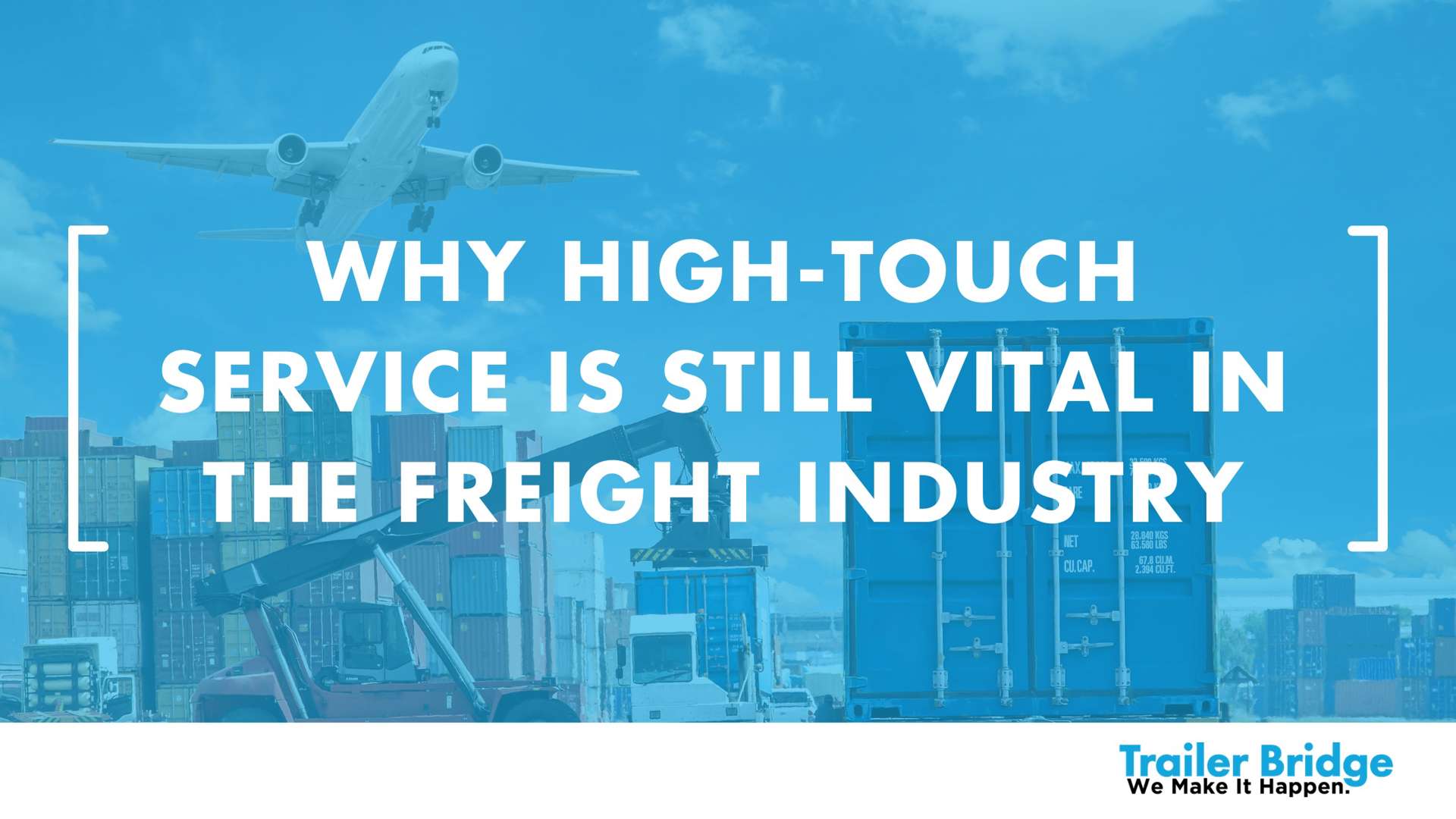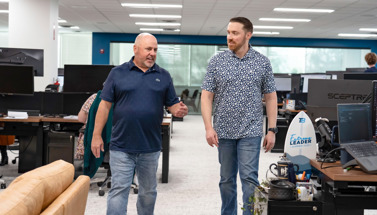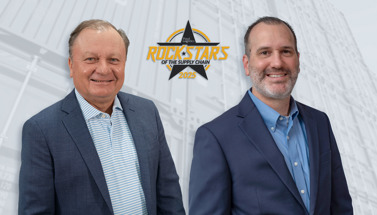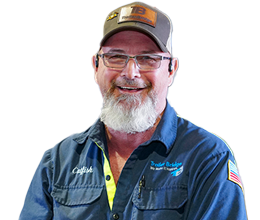Emily Szink: [00:00:11] We’ve seen the benefits of automation in digital transformation in all kinds of industries, but are fully digital freight brokers really the way of the future? I’m Emily Szink, the EVP of Content here at Freight Waves. Joining me to answer that question today is Erik Masotti. He is the Vice President of Logistics at Trailer Bridge. Eric, thanks for joining us today.
Eric Masotti: [00:0032] Thanks for having me. This is great.
Emily: [00:00:34] Well Eric, I would love to dive into an article you recently wrote on TrailerBridge.com about digital versus human freight brokers. For the audience, of course, give a little bit of background about this article. I’m sure everyone is curious to know what you found out.
Eric: [00:00:49] Yes, the article talked about the human freight brokers versus the digital freight broker companies that have come out in our industry in the last four or five years. I really think one of the confusing things is that technology is at play in both solutions. Both of them are providing clients with the state-of-the-art technology that’s going to allow the companies to do and handle their freight as efficiently and effectively as possible.
We just believe that instead of technology being the only source of a solution for the client, that our approach, where we have experts involved in the decisions empowered to make the decisions, really provide the client with the best solution. When something goes wrong, there’s someone there to call. I think we’ve all had an experience where we have had a cable company or a TV provider, and something goes out. There’s no customer rep for us to call, and so you get online, and you wait. It’s just not a great experience. So finding a way to have someone for the customer to talk to, along with providing the efficient and effective technology solutions, we think, is the best way.
Emily: [00:01:52] We just touched on this a little bit. Going fully digital really just leads to efficiency at the cost of a human relationship. What are some of the risks of removing humans from this process entirely?
Eric: [00:02:05] It really just comes down to, when something goes wrong, do you want to be able to talk to a human to get the right solution, or do you want to get on a phone or an email and wait for a response?
I mean, there’s a lot of things that are behind that, where technology can be efficient and effective. But if your account manager or your salesperson – your rep – isn’t involved in the process from the origin of the load creation to the load delivery, when something goes wrong, they’re not just going to all of a sudden be experts at what happened and where it went. And so, even though we are using technology to help us do those things efficiently, that account rep, that person that handles the customer is involved throughout the process, making those decisions.
Emily: [00:02:46] You just gave a few examples of this, but why do you feel that people are so essential to successful 3PL transactions?
Eric: [00:02:54] At Trailer Bridge, for us, it really comes down to the company culture and empowering our employees. A lot of times, and this is some of the reason that the digital freight brokers have become en vogue here recently, is to devalue the employee because employees bring risk, they can do something wrong. But they can also gain customer relationships and become so critical to the relationship that people feel the employees can be a threat.
And so, you know, we just turn that situation on its head. We want employees to have great relationships with our customers. And we don’t have non-competes and we don’t do all these things because we want those relationships to really be true. Not just, “Hey, how is it going?” but to know when their birthdays are, and if they have children or if they like sports teams. All those things are just really critical to making a great buying experience because customers are buying with us.
Emily: [00:03:49] That is completely right, and I love this next part. In your article, you mentioned that Trailer Bridge uses technology to empower its employees, not replace them. This technology helps augment their performance, so they could do better at their jobs. What does this look like inside the organization for you?
Eric: [00:04:07] The technologies at play on a variety of different levels, from making the carrier selection process smoother and easier.
We also have Gamification Leadership Boards. We’ve got multiple offices here domestically, in the US, also in the Caribbean, also in Latin America. In all these locations, we’ve got leaderboards that will play walk-up music if something happens in one of the contests that we’re running.
But by just showing employees where they stand, understanding the kind of performance that we are looking for, so they understand, and we understand. We’re trying to get to the same goal, and the goal is satisfying customers.
Emily: [00:04:43] And gamification is so big in every industry but especially ours. What are some things that companies should consider to ensure they have the proper balance of digitization and the human element?
Eric: [00:04:55] You know, for us at Trailer Bridge, we’re transferring from multiple TMS systems to one. We have multiple service offerings from ocean, domestic truckload, brokerage, drayage, and we’re putting that in one TMS to give employees more solutions right at their fingertips.
How we do business compared to some of our competitors… some of our competitors like to silo their operations. So they will have one group of salespeople, one group of account managers, one group of operational staff. And for us, you know, we have people that specialize in different tasks, but we put them in the same group. Putting them in the same group really allows that the incentive structures to stay in alignment. Oftentimes, when they are separated, they are not really working for the customers so much as they are working for their department, and we want the staff movers to work for the customer.
Emily: [00:05:46] Lovely. A great conversation, Eric, and I think this is a topic that’s going to be continued to talk about throughout our industry.
For more on this, check out Eric’s blog post Digital Freight Brokers vs Human Freight Brokers.






